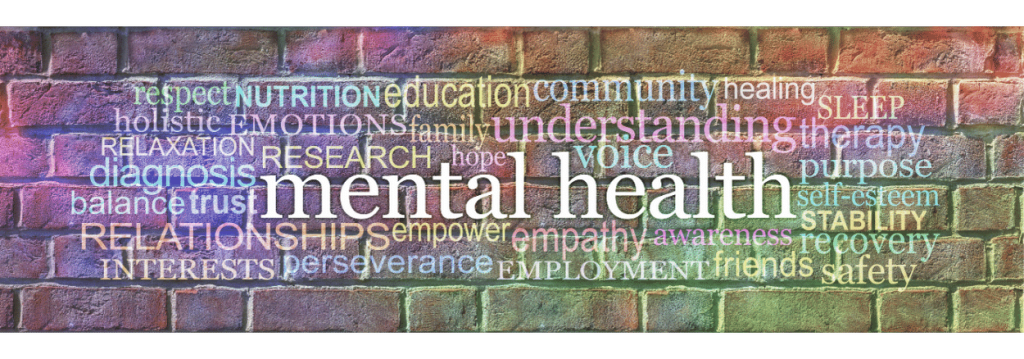Mental Health Vs Emotional Health are often used interchangeably, but they are not the same.
According to WHO (World Health Organization), 1 of every 7 teenagers go through mental disorders due to various reasons. It can happen due to genetics, environmental, or lifestyle factors.
Understanding these differences is crucial for overall well-being. This article explains how mental and emotional health differ, why both matter, and how to improve them.
In this article, we will look closer at mental health vs emotional health and how it differs. So, by the end, you will be a step closer to your self-healing journey!
Difference Between Mental Health vs Emotional Health
| Aspect | Mental Health | Emotional Health |
| Definition | Overall psychological well-being | Ability to manage and express emotions |
| Focus | Cognitive processes and behavior | Feelings and emotional responses |
| Components | Thoughts, perceptions, and reasoning | Emotional awareness and regulation |
| Indicators | – Ability to cope with stress<br>- Productivity<br>- Realizing potential<br>- Contributing to community | – Resilience<br>- Self-awareness<br>- Empathy<br>- Emotional expression |
| Issues | Depression, anxiety, schizophrenia | Mood swings, emotional outbursts, numbness |
| Treatment | Psychotherapy, medication, lifestyle changes | Emotional intelligence training, counseling |
| Professional Help | Psychiatrists, psychologists | Therapists, counselors |
| Diagnosis | Based on DSM-5 or ICD-10 criteria | Often subjective, based on self-reporting |
| Societal Perception | More widely recognized and discussed | Often overlooked or misunderstood |
| Interrelation | Affects emotional health | Influences mental health |
| Long-term Impact | Can affect overall life quality | Affects relationships and self-image |
| Prevention | Stress management, healthy lifestyle | Developing coping skills, mindfulness |
What is Mental Health?
Mental health refers to the state of our psychological and emotional well-being. It encompasses our thoughts, feelings, and behaviors, as well as our ability to cope with stress and adversity.
Good mental health allows us to function optimally, maintain healthy relationships, and experience a sense of purpose and fulfillment in life.

Key Points of Mental Health:
- Mental health involves our cognitive and emotional processes.
- It influences our overall well-being and quality of life.
- It can be affected by various factors, including genetics, environmental influences, upbringing, life experiences, etc.
- Mental illnesses, such as anxiety disorders, depression, and schizophrenia, are examples of conditions that can impact mental health.
What is Emotional Health?
Emotional health, on the other hand, focuses on our ability to identify, understand, and manage our emotions properly. It includes being in touch with our feelings, expressing them appropriately, and regulating our emotional responses.
Emotional health plays a vital role in our relationships, decision-making, and overall satisfaction in life.

Here are some key points about emotional health:
- It’s about being aware of our own emotions and having what we call emotional intelligence.
- It affects how we handle stress, deal with conflicts, and maintain healthy relationships.
- Things like how we were raised, the support we get from others, and our personal resilience can influence our emotional health.
- Working on our emotional intelligence can boost our emotional well-being and make us happier overall.
Mental health and emotional health may sound similar, but they’re actually different, and both are really important. Understanding these differences can help us take better care of ourselves and live our best lives.
Mental Health vs Emotional Health
While mental health and emotional health are interconnected, they differ in their focus and scope. Mental health encompasses a broader range of cognitive and psychological processes, including our thoughts, perceptions, and mental illnesses. Emotional health, on the other hand, centers around our emotions, their regulation, and their impact on our well-being.
For instance, a person with good mental health may have a positive outlook on life, manage stress effectively, and have stable thought patterns. In contrast, someone with poor mental health may experience difficulties in thinking clearly, have mood swings, and struggle with mental illnesses.

In terms of emotional health, an emotionally healthy individual may possess self-awareness, have good emotional regulation skills, and maintain healthy relationships.
Conversely, someone with poor emotional health may exhibit frequent mood swings, struggle to express their emotions, and have difficulties forming and maintaining relationships.
How Are Mental and Emotional Health Related?
Mental and emotional health are closely connected. They work together to shape how we feel and act every day. When one improves, it often helps the other get better, too.
Think of mental health as how your brain works. It’s about your thoughts and how you understand things. Emotional health is more about your feelings and how you handle them.
Good mental health can lead to better emotional health. When your mind is clear, dealing with your emotions is easier. For example, if you can think positively, you might feel happier.
On the flip side, good emotional health can boost your mental health. You might have less stress if you’re good at managing your feelings. This can help your mind work better.
Sometimes, problems in one area can affect the other. If you’re always sad (an emotional issue), focusing or making decisions (mental tasks) might be harder.
Taking care of both is important for feeling good overall. This might mean talking to friends, exercising, or seeing a professional if you need extra help.
Remember, everyone has ups and downs in both areas. It’s normal and okay to seek support when you need it.
Real-Life Examples of Mental Health and Emotional Health
Now, let’s dig into some real-life scenarios to better understand the difference between mental health and emotional health:
First up, picture this:
You can have a mental health disorder while still maintaining strong emotional health. Let me give you a personal example. I’ve actually been diagnosed with an anxiety disorder, but guess what?
I consider myself emotionally healthy. I’ve got amazing personal relationships, and I can handle my emotions like a boss, adjusting them appropriately depending on the situation. Plus, I’m no stranger to genuine joy and positivity.
Imagine someone grappling with a generalized anxiety disorder or chronic depression. Their emotional health might take a hit. They might struggle to keep relationships intact, find it hard to cope with stress and emotions, and generally have trouble finding that sunshine in their life.
But here’s the twist: even in these cases, they might still have a glimmer of empathy for others. So, it’s a bit of a personal rollercoaster, with emotions and mental health riding on a subjective scale.
Now, let’s move to the extreme end of the spectrum. Brace yourself!
Picture a sociopath, someone with an antisocial personality disorder. These folks toss societal rules and norms out the window and don’t care about hurting others, physically or emotionally. They lack the ability to grasp and appreciate other people’s feelings, making empathy an alien concept to them.
Here, we’re dealing with a double whammy—both a mental disorder and some seriously messed up emotional health.
So, to sum it all up, mental health and emotional health may share a connection, but they’re like two separate puzzle pieces that complete the big picture of well-being.
Emotional health is all about those positive vibes and connections, while mental health focuses on cognitive abilities and decision-making prowess.
Similarities Between Mental and Emotional Health
Mental and emotional health share many similarities. Both are key parts of our overall well-being and affect how we live our daily lives.
Both mental and emotional health influence how we handle stress. We can better cope with life’s challenges when we’re mentally and emotionally healthy.
They both impact our relationships. Good mental and emotional health helps us connect with others and build strong bonds.
Our thoughts and feelings are closely linked. What we think (mental health) often affects how we feel (emotional health) and vice versa.
Both can be improved with similar strategies. Exercise, good sleep, and talking to friends can boost both mental and emotional health.
Problems in either area can affect our physical health. For example, stress from mental or emotional issues can lead to headaches or stomach problems.
Here’s a table showing some key similarities:
| Aspect | Mental Health | Emotional Health |
| Affects daily life | ✅ | ✅ |
| Influences relationships | ✅ | ✅ |
| Can be improved | ✅ | ✅ |
| Impacts physical health | ✅ | ✅ |
| Helps with stress management | ✅ | ✅ |
| Can benefit from professional help | ✅ | ✅ |
| Influenced by lifestyle choices | ✅ | ✅ |
| Important for overall well-being | ✅ | ✅ |
Remember, taking care of your mental and emotional health together can lead to a happier, more balanced life.
How to Tell If Someone is Struggling Mentally or Emotionally
Identifying whether someone is struggling mentally or emotionally can be challenging, as individuals may exhibit various signs and symptoms.
However, some common indicators can help us recognize when someone might be in need of support:
- Changes in behavior: Noticeable shifts in a person’s behavior, such as withdrawal from social interactions, loss of interest in activities, or increased irritability, can signal potential mental or emotional struggles.
- Mood swings: Drastic and frequent changes in mood, including persistent sadness, anger, or anxiety, may indicate underlying mental or emotional health issues.
- Difficulty functioning: If someone is experiencing difficulties in carrying out daily activities, such as a decline in productivity, impaired concentration, or disrupted sleep patterns, it could indicate mental or emotional distress.
- Social isolation: Withdrawing from social connections and avoiding previously enjoyed social activities can indicate emotional or mental health challenges.
- Physical symptoms: Physical manifestations, such as unexplained headaches, digestive issues, or changes in appetite or weight, can sometimes be linked to mental or emotional struggles.
When discussing mental or emotional well-being, it is important to approach individuals with empathy, compassion, and without judgment. Encouraging open conversations and offering support can make a significant difference in their journey toward healing.
How to Build Mental and Emotional Health?
Building and maintaining good mental and emotional health is a lifelong process that requires effort and self-care. Here are some strategies that can contribute to improving mental and emotional well-being:

- Practice self-care: Consider Engaging yourself in activities that bring you happiness and relaxation, such as meditation, hobbies, exercises, or spending time in nature.
- Seek support: Reach out to trusted friends, family, or mental health professionals when you need someone to talk to or seek guidance from.
- Maintain healthy relationships: Cultivate positive and supportive relationships that contribute to your well-being and surround yourself with people who uplift and inspire you.
- Develop emotional intelligence: Enhance your ability to recognize and understand your emotions, as well as those of others, through self-reflection, empathy, and active listening.
- Manage stress: Learn effective stress management techniques, such as deep breathing exercises, mindfulness, or engaging in stress-reducing activities like yoga or journaling.
- Prioritize sleep: Ensure you get enough quality sleep to allow your mind and body to rest and recharge.
- Set realistic goals: Establish achievable goals and break them down into smaller, manageable steps, celebrating each milestone along the way.
- Practice gratitude: Cultivate a mindset of gratitude by acknowledging and appreciating the positive aspects of your life regularly.
You might also like:
Our Take On Men’s Mental Health Awareness
Conclusion
Mental Health Vs Emotional Health are closely connected but serve different roles in well-being.
Mental health influences how you process information, while emotional health determines how you handle feelings. Both are essential for a balanced life; neglecting one can affect the other. Prioritizing self-care, seeking support, and practicing mindfulness can strengthen both aspects.
By understanding their differences, you can take proactive steps toward a healthier mind and emotions. Focus on maintaining a balance, as intense mental and emotional health leads to better relationships, improved decision-making, and happiness.
